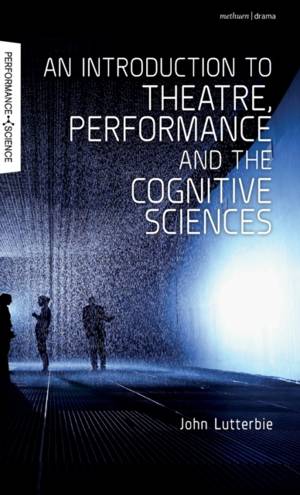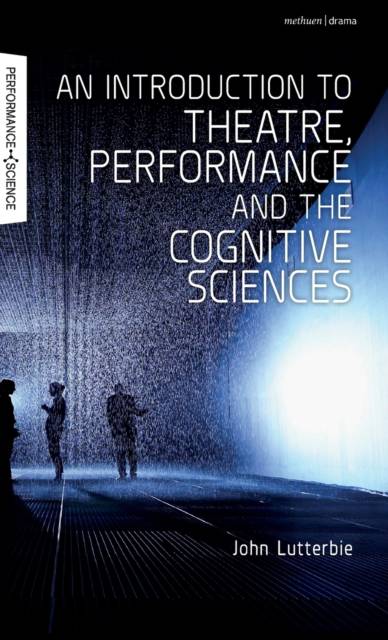
- Afhalen na 1 uur in een winkel met voorraad
- Gratis thuislevering in België vanaf € 30
- Ruim aanbod met 7 miljoen producten
- Afhalen na 1 uur in een winkel met voorraad
- Gratis thuislevering in België vanaf € 30
- Ruim aanbod met 7 miljoen producten
An Introduction to Theatre, Performance and the Cognitive Sciences
John LutterbieOmschrijving
This is the first textbook designed for students, practitioners and scholars of the performing arts who are curious about the power of the cognitive sciences to throw light on the processes of performance. It equips readers with a clear understanding of how research in cognitive neuroscience has illuminated and expanded traditional approaches to thinking about topics such as the performer, the spectator, space and time, culture, and the text. Each chapter considers four layers of performance: conventional forms of theatre, performance art, and everyday life, offering an expansive vision of the impact of the cognitive sciences on performance in the widest sense.
Written in an approachable style, An Introduction to Theatre, Performance and the Cognitive Sciences weaves together case studies of a wide range of performances with scientific evidence and post-structural theory. Artists such as Robert Wilson, Societas Raffaello Sanzio, Ariane Mnouchkine, Bertolt Brecht, and Antonin Artaud are brought into conversation with theories of Gilles Deleuze, Shaun Gallagher, Alva Noë, Tim Ingold and the science of V. S. Ramachandran, Vittorio Gallese, and Antonio Damasio. John Lutterbie offers a complex understanding of not only the act of performing but the forces that mark the place of theatre in contemporary society. In drawing on a variety of scientific articles, Lutterbie provides readers with an accessible account of significant research in areas in the field and reveals how the sciences can help us understand the experience of art.Specificaties
Betrokkenen
- Auteur(s):
- Uitgeverij:
Inhoud
- Aantal bladzijden:
- 208
- Taal:
- Engels
- Reeks:
Eigenschappen
- Productcode (EAN):
- 9781474256810
- Verschijningsdatum:
- 5/09/2019
- Uitvoering:
- Hardcover
- Formaat:
- Genaaid
- Afmetingen:
- 140 mm x 216 mm
- Gewicht:
- 390 g

Alleen bij Standaard Boekhandel
Beoordelingen
We publiceren alleen reviews die voldoen aan de voorwaarden voor reviews. Bekijk onze voorwaarden voor reviews.









